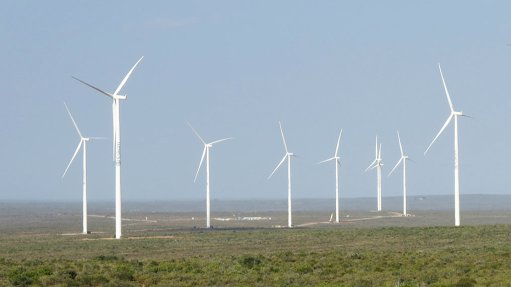Focus on tariff determinations
The National Budget has always tended to be an uninspiring affair as far as customs, excise and international trade are concerned. Its focus tends to be limited to increases in sin taxes – taxes on tobacco and liquor – and taxes on petroleum products. This year’s Budget, however, made for a pleasant exception.
Under ‘Customs and Excise Perspective’, three focus areas were introduced: exchanging information with the Department of International Relations and Cooperation; providing for the publication of tariff determinations; and progress regarding the review of the diesel refund administration.
What should generate excitement among the business community is the second-mentioned focus area. For years, I have argued the case, in this column and elsewhere, for the South African Revenue Service (Sars) to publish tariff determinations.
In the instance of excise duty, tariff determinations are required. Sars released its ‘Excise – External Standard: Tariff Determination’ on February 19, 2016. It provides insight into the principle and process of the tariff determinations.
To borrow from the document, ‘tariff classification’ is the process whereby any imported or exported commodity is categorised in accordance with three attributes: what it is, how it is made and what it is used for.
The tariff classification code, also known as the commodity code, is directly linked to the rate of duty payable on that commodity. Commodities are classified in terms of the International Harmonised Commodity and Coding System (the Harmonised System), under the World Customs Organisation (WCO) Harmonised System Convention, to which South Africa is a contracting party. The Customs and Excise Act of 1964 contains provisions for tariff classification, as well as the rules of classification.
The classification of a product needs to be in accordance with the International Convention on the Harmonised Commodity Description and Coding System, which comprises six General Interpretative Rules that need to be applied in hierarchical order. There are several WCO resources available, such as the Explanatory Notes, the HS Classification Handbook and the Published Tariff Classification Opinions.
Finance Minister Tito Mboweni noted in his Budget speech: “The WCO advocates capacity building, skills development and knowledge sharing by customs authorities to enhance compliance with customs and excise legislation. Publishing tariff classifications will be useful in this regard and will contribute to consistency and transparency in the classification of goods.
It is proposed that the Customs and Excise Act of 1964 be amended to provide for the publication of tariff determinations and rules prescribing the circumstances in which such publication may take place, the kind of information that may be published and the manner of publication.”
On liability for duty in respect of imported goods, he said: “The liability for import duties rests with the master, pilot or carrier and only ceases when the goods are lawfully delivered, after due entry, to the importer or agent of the importer. Complaints by stakeholders have highlighted certain difficulties relating to the cessation of liability of the master, pilot or carrier at that stage. These difficulties include high shipping-line charges for landside operations and the transport of goods for scanning, the favouring of shipping-line transport, and the removal of containers to certain container depots with which shipping lines have private agreements. It is proposed that the Act be amended to address these challenges by providing for licensed removers of goods in bond to move containerised goods from container terminals before they are released. The liability of the master, pilot or carrier will cease on delivery of the goods to a licensed remover. Provision will also be made for the assumption of liability by the licensed remover on receipt of the goods until their delivery.”
Article Enquiry
Email Article
Save Article
Feedback
To advertise email advertising@creamermedia.co.za or click here
Press Office
Announcements
What's On
Subscribe to improve your user experience...
Option 1 (equivalent of R125 a month):
Receive a weekly copy of Creamer Media's Engineering News & Mining Weekly magazine
(print copy for those in South Africa and e-magazine for those outside of South Africa)
Receive daily email newsletters
Access to full search results
Access archive of magazine back copies
Access to Projects in Progress
Access to ONE Research Report of your choice in PDF format
Option 2 (equivalent of R375 a month):
All benefits from Option 1
PLUS
Access to Creamer Media's Research Channel Africa for ALL Research Reports, in PDF format, on various industrial and mining sectors
including Electricity; Water; Energy Transition; Hydrogen; Roads, Rail and Ports; Coal; Gold; Platinum; Battery Metals; etc.
Already a subscriber?
Forgotten your password?
Receive weekly copy of Creamer Media's Engineering News & Mining Weekly magazine (print copy for those in South Africa and e-magazine for those outside of South Africa)
➕
Recieve daily email newsletters
➕
Access to full search results
➕
Access archive of magazine back copies
➕
Access to Projects in Progress
➕
Access to ONE Research Report of your choice in PDF format
RESEARCH CHANNEL AFRICA
R4500 (equivalent of R375 a month)
SUBSCRIBEAll benefits from Option 1
➕
Access to Creamer Media's Research Channel Africa for ALL Research Reports on various industrial and mining sectors, in PDF format, including on:
Electricity
➕
Water
➕
Energy Transition
➕
Hydrogen
➕
Roads, Rail and Ports
➕
Coal
➕
Gold
➕
Platinum
➕
Battery Metals
➕
etc.
Receive all benefits from Option 1 or Option 2 delivered to numerous people at your company
➕
Multiple User names and Passwords for simultaneous log-ins
➕
Intranet integration access to all in your organisation

















